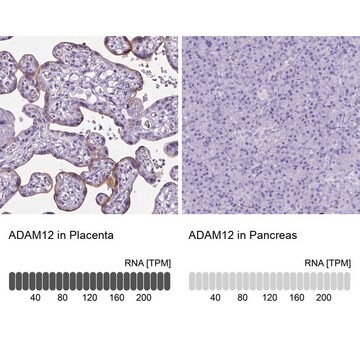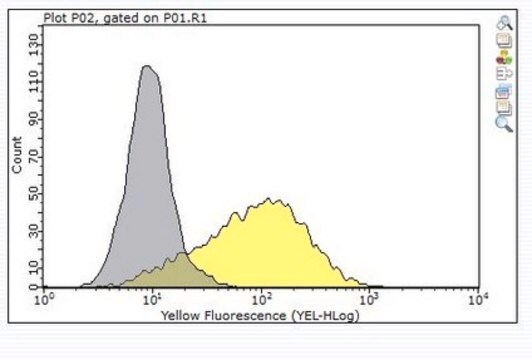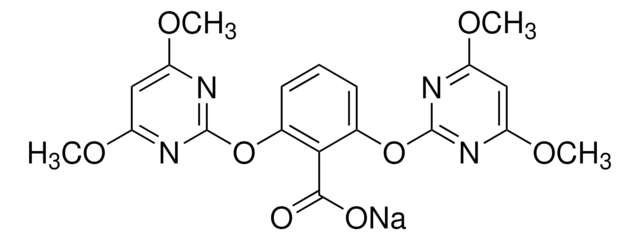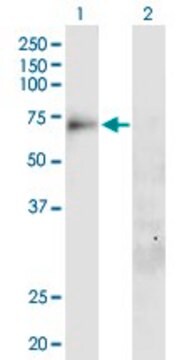MABT1331
Anti-ADAM 12 Antibody, clone 6E6
clone 6E6, from mouse
Synonym(e):
Disintegrin and metalloproteinase domain-containing protein 12, Meltrin-alpha
About This Item
Empfohlene Produkte
Biologische Quelle
mouse
Antikörperform
purified immunoglobulin
Antikörper-Produkttyp
primary antibodies
Klon
6E6, monoclonal
Speziesreaktivität
human
Verpackung
antibody small pack of 25 μg
Methode(n)
flow cytometry: suitable
immunocytochemistry: suitable
immunoprecipitation (IP): suitable
western blot: suitable
Isotyp
IgG1κ
NCBI-Hinterlegungsnummer
UniProt-Hinterlegungsnummer
Posttranslationale Modifikation Target
unmodified
Angaben zum Gen
human ... ADAM12(8038)
Allgemeine Beschreibung
Spezifität
Immunogen
Anwendung
Apoptose & Krebs
Western Blotting Analysis: A representative lot detected ADAM 12 in Western Blotting applications.
Immunoprecipitation Analysis: A representative lot immunoprecipitated ADAM 12 in Immunoprecipitation applications.
Immunocytochemistry Analysis: A representative lot detected ADAM 12 in Immunocytochemistry applications.
Flow Cytometry Analysis: A representative lot detected ADAM 12 in Flow cytometry applications.
Qualität
Immunocytochemistry Analysis: A 1:250 dilution of this antibody detected ADAM 12-DeltaCyt in MCF-7 cells.
Zielbeschreibung
Physikalische Form
Lagerung und Haltbarkeit
Sonstige Hinweise
Haftungsausschluss
Not finding the right product?
Try our Produkt-Auswahlhilfe.
Analysenzertifikate (COA)
Suchen Sie nach Analysenzertifikate (COA), indem Sie die Lot-/Chargennummer des Produkts eingeben. Lot- und Chargennummern sind auf dem Produktetikett hinter den Wörtern ‘Lot’ oder ‘Batch’ (Lot oder Charge) zu finden.
Besitzen Sie dieses Produkt bereits?
In der Dokumentenbibliothek finden Sie die Dokumentation zu den Produkten, die Sie kürzlich erworben haben.
Unser Team von Wissenschaftlern verfügt über Erfahrung in allen Forschungsbereichen einschließlich Life Science, Materialwissenschaften, chemischer Synthese, Chromatographie, Analytik und vielen mehr..
Setzen Sie sich mit dem technischen Dienst in Verbindung.








